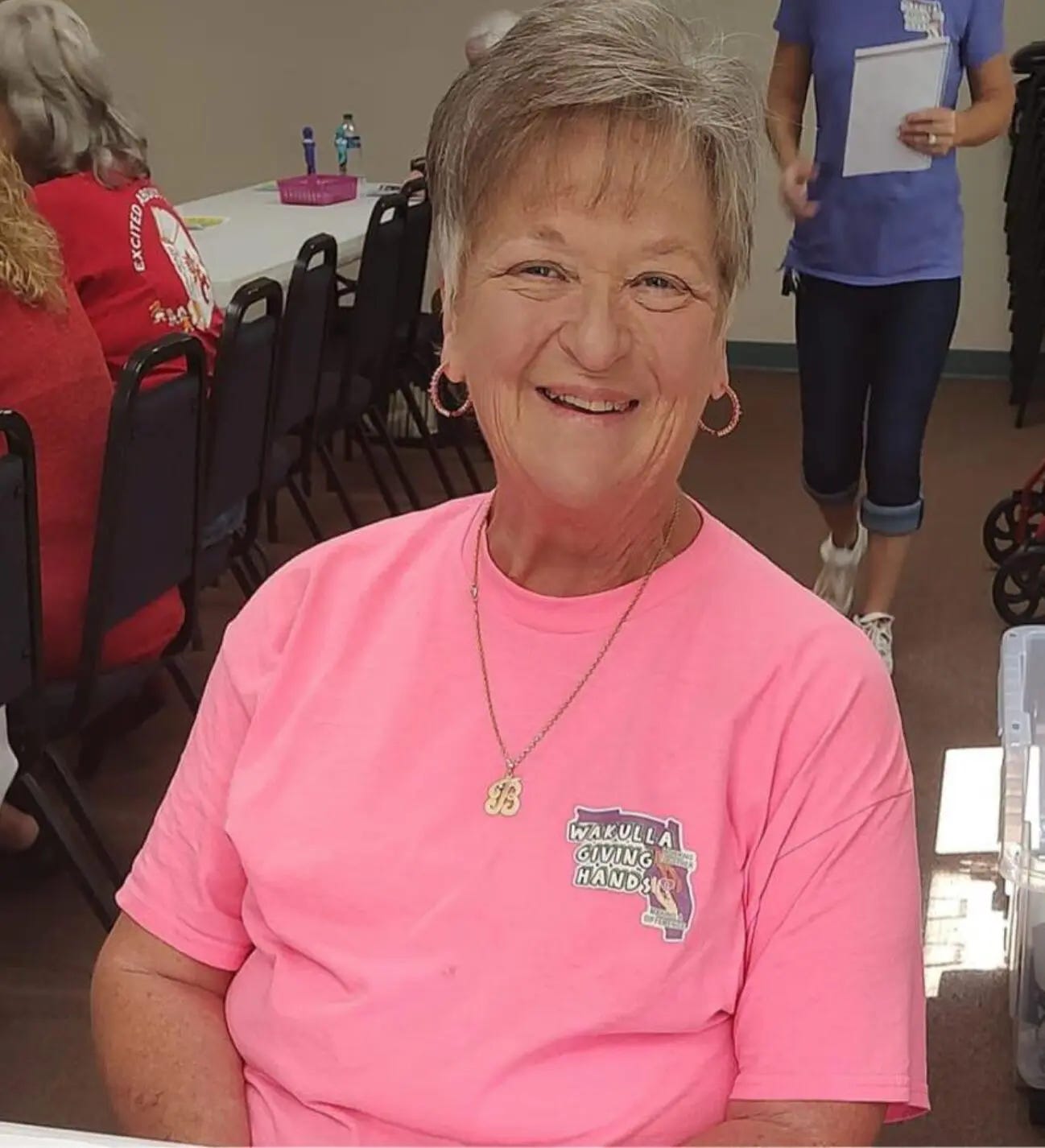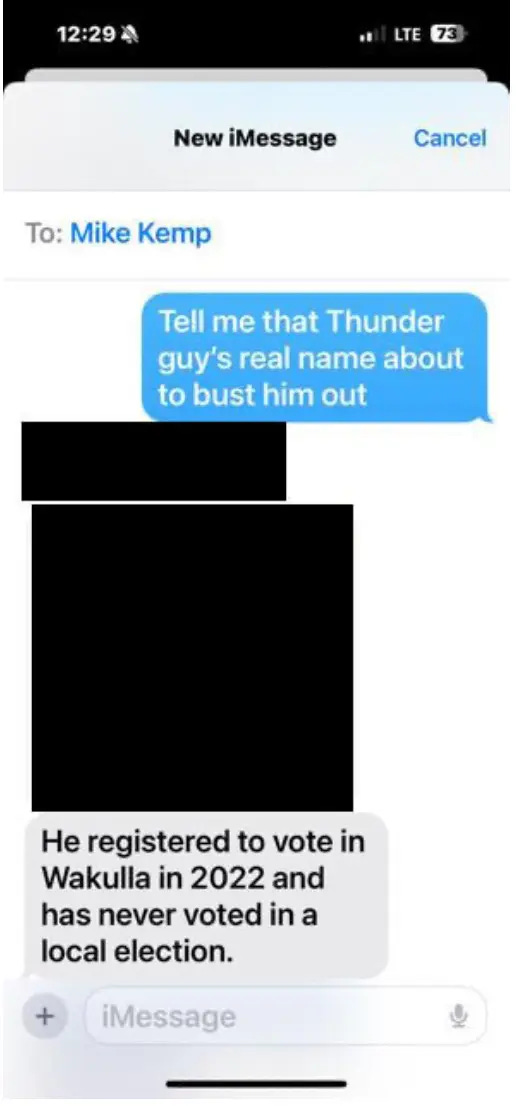Facebook ‘doxxing’ target speaks out as criminally charged county commissioner and deputy await arraignment
A Wakulla County Commissioner, community volunteer and sheriff's deputy are facing charges after they allegedly worked together to dox a local government critic, but got the wrong person.
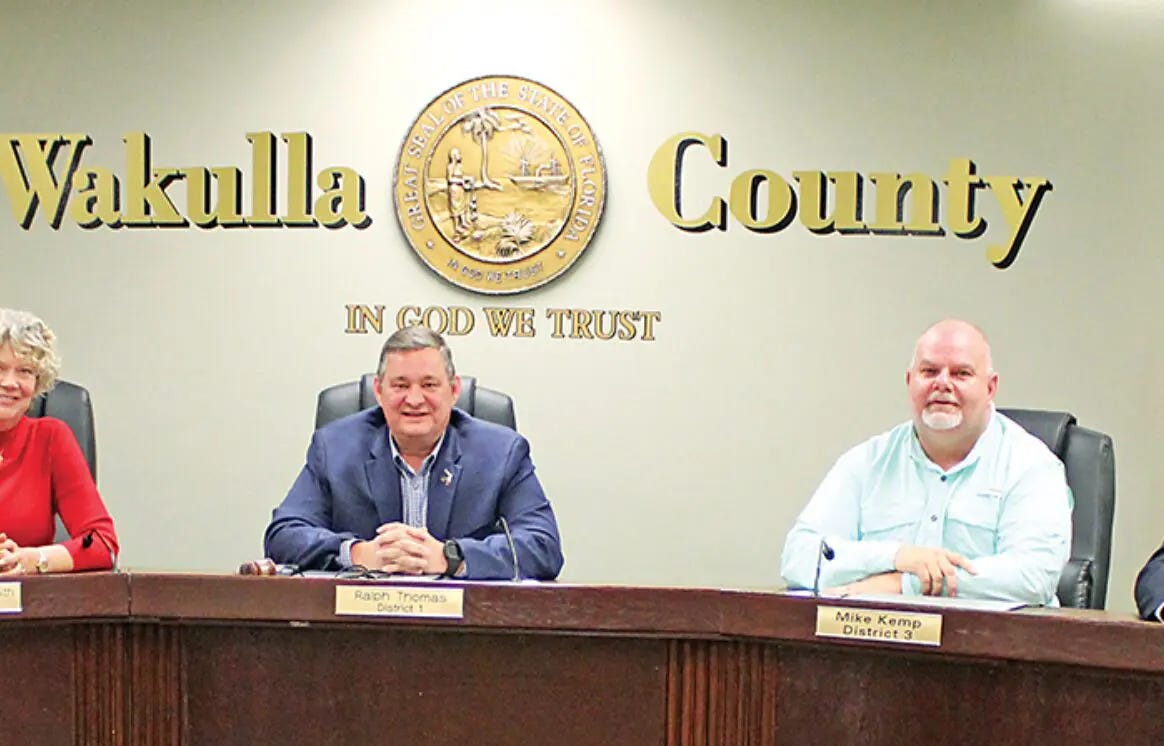
Lonnie Walton has often spoken out on Facebook against the Wakulla County Commission’s handling of many issues, from growth and development to roads and sewers.
“If nobody speaks up, nothing gets fixed,” the 70-year-old retiree said.
For years Walton made his complaints anonymously under a Facebook account he called “Thunder Lightening [sic],” and drew the attention of Wakulla commissioners Mike Kemp and Ralph Thomas, who were among those he singled out for criticism.
“It’s an election year,” said Walton, speaking publicly for the first time. “I’m going against the grain because I don’t like what’s going on over here. As far as I’m concerned, they’re ruining our county.”
He became accustomed to counter-attacks online, but on the afternoon of May 6, the backlash went to another level when a local Republican activist named Becky Whaley tried to unmask Walton. The 65-year-old Whaley tagged Thunder Lightening in a post containing a screenshot with a name, home address, birth date, voter registration number and party affiliation of a person she claimed was behind the anonymous Facebook account.
“Introducing Thunder Lightening,” Whaley wrote at the top of the post. “Registered to vote in 2022 according to the records and data shows he’s never voted! Show your face and own your truth.”
But Whaley got it wrong. The person she outed was not Walton, but a random citizen. Walton removed the personal data from his own site and set out to find the individual who’d been wrongly singled out.
In Florida it’s a third-degree felony, punishable by up to five years in prison, to post someone’s personal information online in order to harass someone, a practice commonly known as “doxxing.” After a criminal complaint was made by the doxxing victim, the Wakulla County Sheriff’s Office opened a criminal investigation that revealed Whaley didn’t act alone – she had help from none other than county commissioners Kemp and Thomas.
The series of events that culminated in the errant doxxing began after Walton posted on Thunder Lightening a photo of a white truck he complained almost hit his wife in a grocery store parking lot. Hoping to discover the person behind the Facebook page, Kemp enlisted Wakulla sheriff’s Dep. Donald Newsome to find out if anyone had filed any complaints with the sheriff’s office involving the white truck.
According to sheriff’s reports, Newsome improperly used his agency’s “Computer Aided Dispatch” (CAD) system to learn that a man had recently filed a complaint involving a white truck. That complaint, however, was not made by Walton, but by the doxxing victim, whose identify has been withheld.
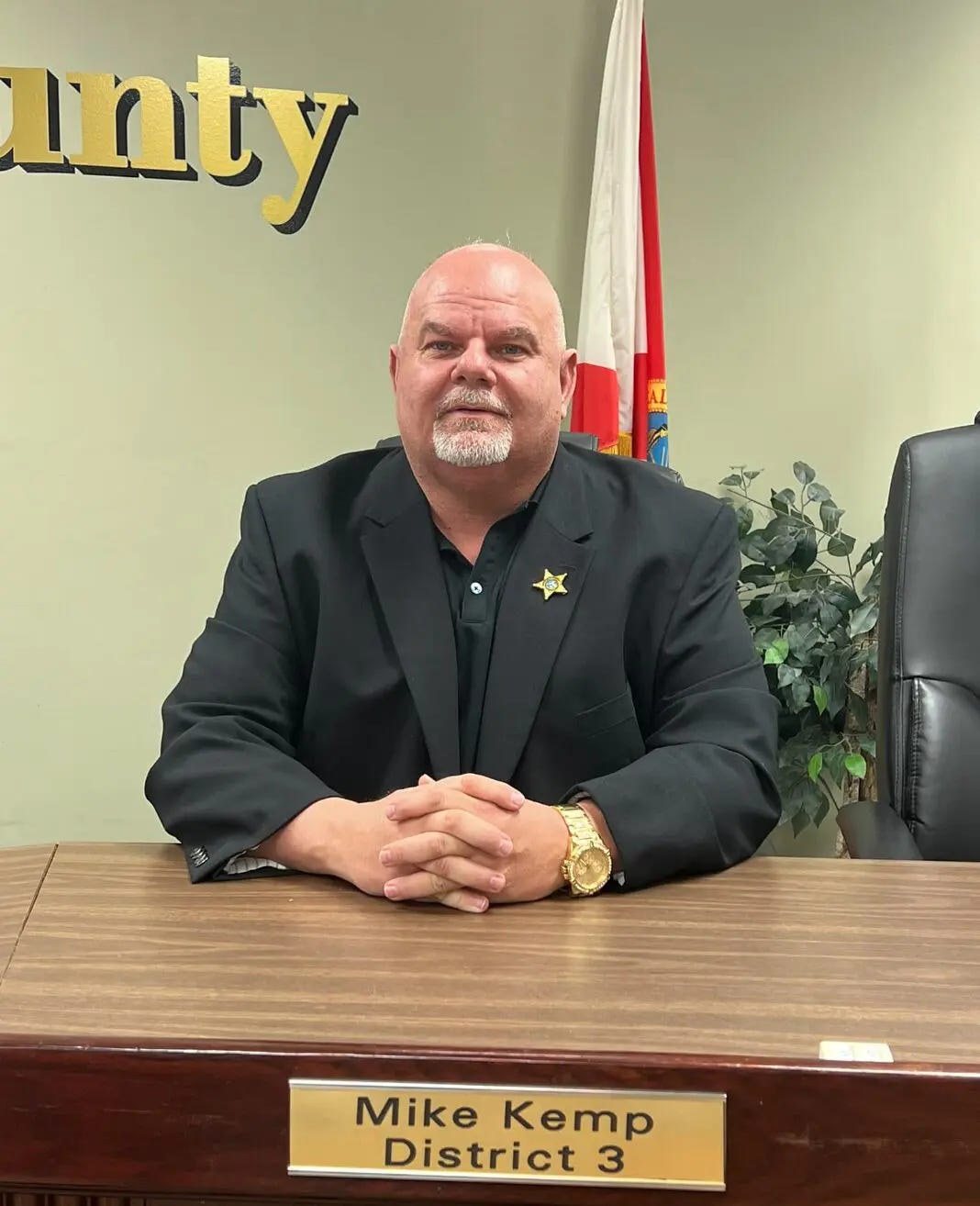
Armed with the name, Commissioner Thomas then used a political software program called WebElect to access his voter information profile. He shared that information with Kemp, who sent it to Whaley, who posted it to Facebook.
“I suspected it was going on like that,” Walton said of the apparent conspiracy. “I always thought it was a good old boys network – I just didn’t know how extensive it was.”
The sheriff’s office charged both Whaley and Kemp with using personal identifying information to harass someone. Kemp also faces a more serious second-degree felony charge of witness tampering. The deputy, Newsome, was charged with a third-degree felony of unauthorized access of a computer or electronic device.
Whaley and Kemp are set to appear in front of Judge J. Layne Smith at the Wakulla County Courthouse at 9 a.m. on Dec. 5 for arraignment, while Newsome is scheduled for a review hearing. Newsome has pleaded not guilty, while the other two defendants haven’t yet entered a plea.
Thomas, however, was neither charged nor even interviewed by deputies, a fact Walton finds curious.
“For the life of me,” Walton said, “I can’t understand why he was never questioned.”
Questions raised about investigation
The investigation found that Thomas accessed the victim’s voter information from WebElect twice – once in late April, and again on the day of the May 6 doxxing, about 20 minutes before Whaley posted the information online.
When detectives asked Kemp who gave him the voter information profile from WebElect, he refused to talk about his elected colleague Thomas. “I’m not going to answer that,” Kemp said in the recorded interview. “The person don’t [sic] need to be involved.”
Deputies didn’t press Kemp for more information about his discussions with Thomas and reported they found “no indication” Thomas knew Whaley intended to post the voter information profile on Facebook when he gave it to Kemp.
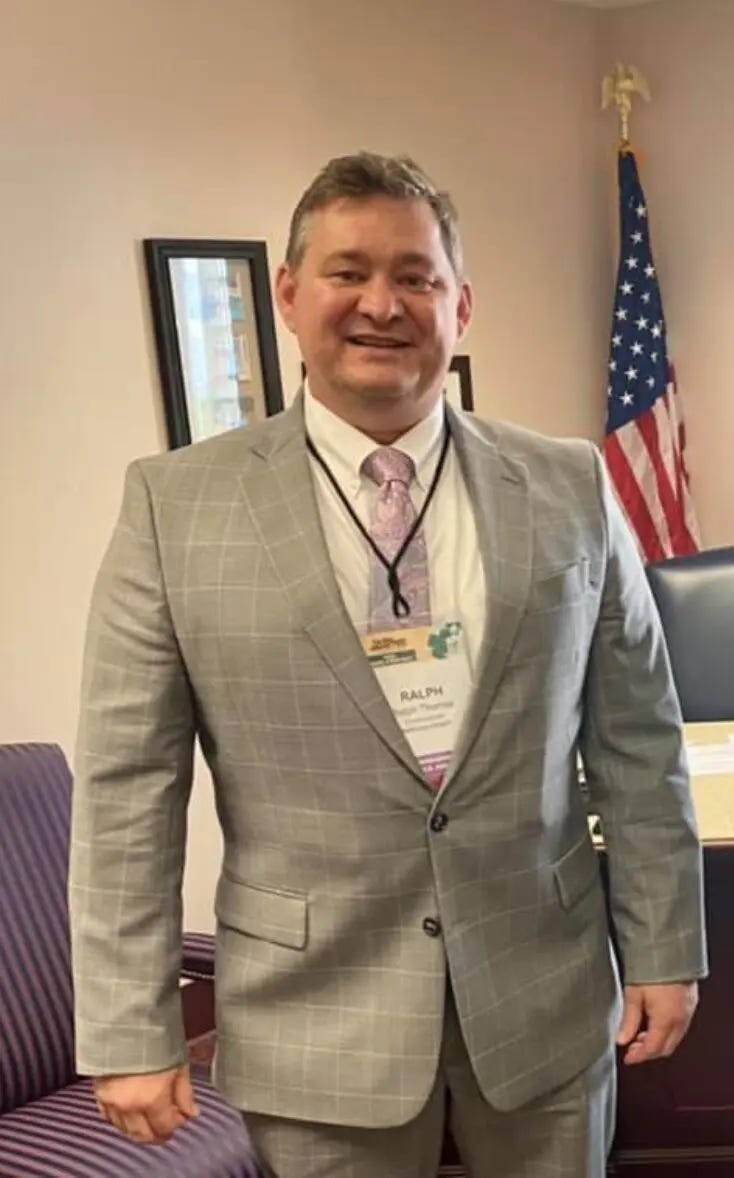
Unlike the three criminal defendants, Thomas’s phone records were never subpoenaed or requested and he was never questioned in the investigation. Thomas, who was first elected to the commission in 2012, hasn’t responded to multiple requests for comment from the Florida Trident.
“He runs [the commission],” Walton said of Thomas. “He’s been there longer than anyone.”
The lead investigator in the case, sheriff’s Dep. Chris Ormerod, didn’t respond to emailed questions from the Trident about his handling of Thomas. State Attorney Jack Campbell, of the Second Judicial Circuit, refused to comment on the facts of the ongoing criminal case as well.
Campbell’s office intentionally waited until after the August primary – which Thomas won and the outgoing Kemp lost – to bring charges. Campbell explained that choice was made because the arrests would have come too close to the vote.
“If I charge somebody within sixty days [of an election], they’re not going to have adequate time for due process,” Campbell explained. “I’m going to be tipping the scales of the election on something, and they’re not going to really have sufficient time to respond.”
Kemp’s last day as a commissioner will come on Nov. 19, when his opponent Valerie Russel is set to be sworn into office.
Investigators say defendants attempted to “cover up” alleged crime
When Walton contacted the doxxing victim’s wife on Facebook, she told him they’d moved to Wakulla County from out of state a couple of years ago and were clueless about local politics. And because she’s a former correctional officer, her address and her husband’s personal information are exempt from the state’s open records laws.
“Where he [Kemp] screwed up was going after a correctional officer,” Walton said. “Their stuff is protected.”
According to the arrest reports, the victim’s wife messaged Whaley at about 10 p.m. on the day of the doxxing and told her to remove the post. Whaley didn’t take it down until the next morning, May 7, at 6:20 a.m. Eighteen minutes after that, the doxxing victim called the sheriff’s office to make a criminal complaint.

The investigation found that Kemp, Thomas, and Whaley were in phone contact that same morning. Kemp also called the off-duty Newsome, who used a law enforcement database to learn about the doxxing victim’s criminal complaint and, according to deputies, tipped Kemp off that a sheriff’s deputy was responding to the victim’s house. Shortly after that call, body camera footage shows Kemp driving by the victim’s house while a deputy was on the scene.
In an interview with his own agency, Newsome denied any intentional wrongdoing.
“We’ve been friends for a long time, but I have no knowledge of any criminal conspiracy [Thomas] is involved in whatsoever,” Newsome said. “I thought I was doing a favor, a low-end favor, something that wouldn’t be against policy.”
When detectives asked Newsome if he alerted Kemp to the fact that the victim had filed a report about the doxxing, the deputy said he didn’t remember checking the CAD system regarding the victim in the case. Despite claims of innocence, investigators determined Newsome was the only person who could’ve notified Kemp that there was an officer on the scene at the victim’s home.
After he drove by the victim’s house, Kemp reached out to the victim’s wife on Facebook and falsely claimed there was another person with her husband’s same name he was targeting in the posts, according to sheriff’s reports. Kemp also offered to take the couple to dinner and advised them to contact him if they ever needed anything.
Deputies said in their report that Kemp’s “attempted manipulation” only made the doxxed man “extremely angry.”
“They don’t want anyone to talk against them”
In her interview with sheriff’s investigators, Whaley explained why she tried to expose the person behind Thunder Lightening.
“He wants every commissioner unelected,” she said. “He wants the sheriff unelected – and it’s just constant. And it’s like, just go vote – shut up and go vote.”
Whaley said she “set out” to uncover his identity specifically after he accused her of being “pro-growth” and “pro-commissioner.”
“He had been booted from my group,” she told deputies. “And he has been giving me a lot of trouble.”
Walton said there’s “nothing out of line” in what he posts. “They don’t want discontent,” he said. “They don’t want anyone to talk against them.”
Kemp also complained to deputies about Thunder Lightening’s posts and contentious exchanges he’d had with Thomas. “He has been on Facebook, bashing us and putting out misinformation and lies nonstop,” said the commissioner.
In text messages, Whaley told Kemp to send her the victim’s name because she was about to “bust him out.” Yet Kemp told investigators he didn’t know Whaley was planning to dox Thunder Lightening.
“I did not think she would post that,” Kemp told police. “No, I did not, no, not in a million years – that actually really shocked me.”
While citizens doxxing public officials is nothing new, government officials unmasking anonymous citizens for expressing dissent is less common and far more worrisome, said Aaron Terr, public advocacy director for the Foundation for Individual Rights and Expression (FIRE), a nonprofit free speech advocacy organization.
“If government officials are retaliating against citizens who criticize them by releasing their personal information or identities, that’s extremely concerning from a free speech perspective,” Terr said. “It could reasonably discourage people from criticizing government officials and attempting to hold them accountable.”
The right to anonymous speech, said Terr, is essential in any democracy.
“Anonymous speech is tightly connected with freedom of speech in this country, going back to the founding,” Terr explained. “A lot of people online speak anonymously or pseudonymously, so that they can speak freely without having to worry about retaliation or harassment from the government, from their employer or from other people.”
Walton, who created the anonymous account to avoid getting suspended by Facebook for his posts about national politics, said he sees no problem with people posting anonymously, even if he doesn’t agree with them.
“If it’s your opinion, an honest opinion, then you ought to be able to make it any way you can,” he said. “I am a concerned citizen, trying to make a point while protecting myself from a good old boys group that believes in doxxing those who don’t agree with them.”
This report was done in partnership with the Florida Center for Government Accountability, a non-profit organization that publishes the Florida Trident and does investigative journalism across the state.


